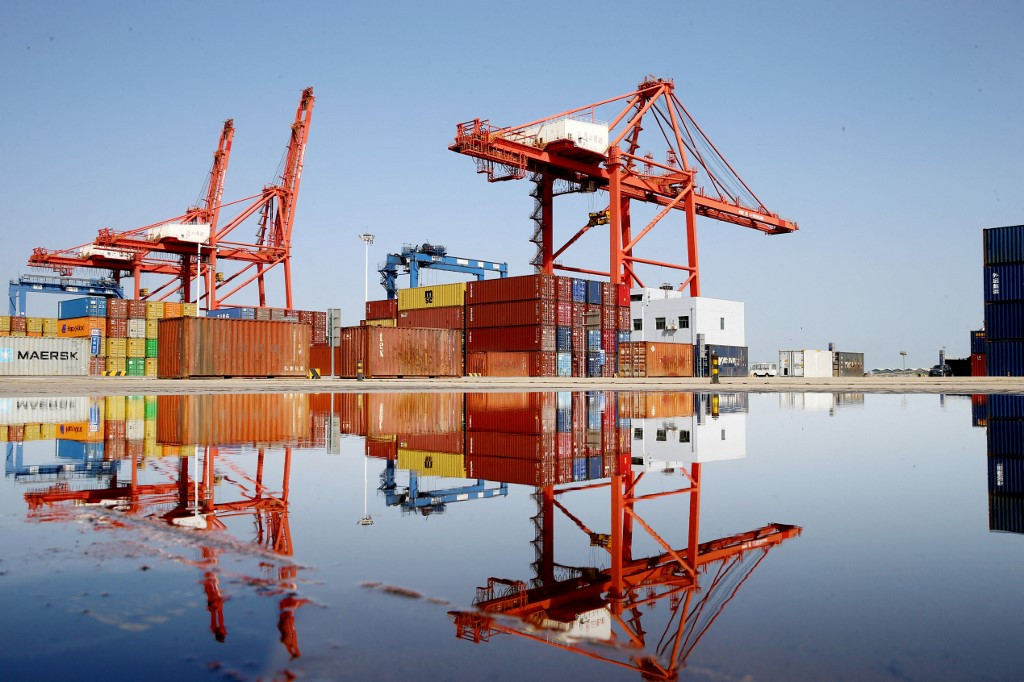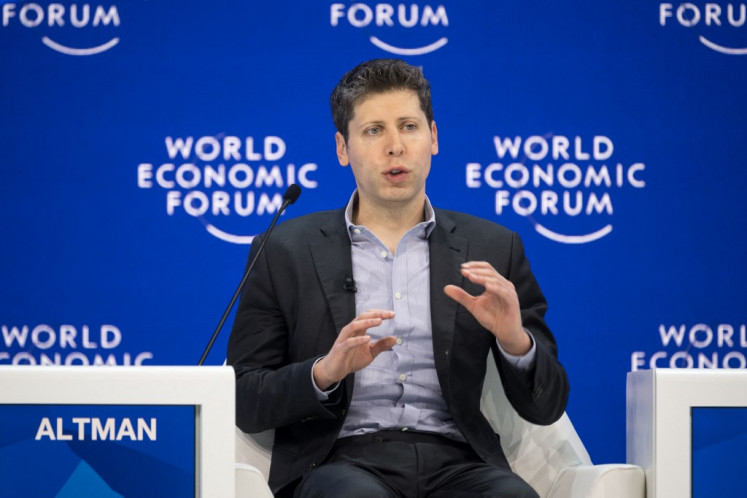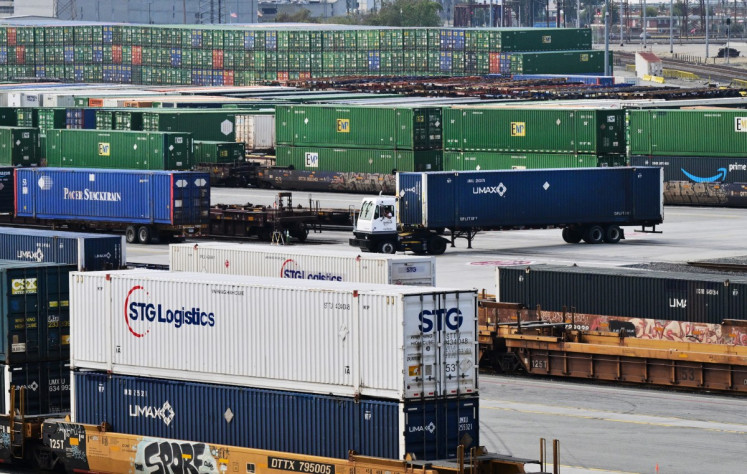Popular Reads
Top Results
Can't find what you're looking for?
View all search resultsPopular Reads
Top Results
Can't find what you're looking for?
View all search resultsConflicting US-China talks statements add to global trade confusion
Change text size
Gift Premium Articles
to Anyone
U
S President Donald Trump asserted in an interview published on Friday that tariff negotiations were under way with China, but Beijing denied any talks were taking place, the latest in a series of conflicting signals over what progress was being made to de-escalate a trade war threatening to sap global growth.
Trump told TIME magazine that talks were taking place and that Chinese President Xi Jinping had called him, an assertion he repeated to reporters as he was leaving the White House on Friday morning for Rome to attend the funeral of Pope Francis.
"China and the US are NOT having any consultation or negotiation on #tariffs," China shot back in a foreign ministry statement posted by the Chinese Embassy in the US. "The US should stop creating confusion."
Trump, speaking to reporters aboard Air Force One later on Friday, said it would be a win if China would open up its markets for US products and that tariffs could make that happen.
"Free up China. You know, let us go in and work China," he said. "That would be great. That would be a big win, but I'm not even sure I'm going to ask for it because they don't want it open."
On Saturday, Chinese Foreign Minister Wang Yi said Beijing abides by international rules on US-imposed tariffs and would seek solidarity with other countries.
"Certain countries adhere to their own priorities, engage in bullying pressure and coercive transactions, and provoke trade wars for no reason, exposing their extreme egoism," Wang said on the sidelines of a regional meeting in Kazakhstan, according to a statement from China's foreign ministry.
The back-and-forth adds to the substantial uncertainty surrounding Trump's erratic tariff policy, not just around China, but also as it pertains to the dozens of countries scrambling to strike their own deals to ease the burden of the hefty import taxes he has unleashed since returning to the White House in January.
His team of negotiators was conducting what amounted to a lightning round of trade talks with foreign officials who had swarmed Washington this week for the spring meetings of the International Monetary Fund and World Bank Group.
But while Trump officials including Treasury Secretary Scott Bessent touted indications of swift progress, many of their counterparts were more circumspect. Finance chiefs at the IMF were heading home with renewed urgency to diminish the risks presented by the tariffs.
"I'm walking away from these meetings with a clear sense of everything that is at stake and the risks that are there for jobs, for growth, for living standards all over the world," Irish Finance Minister Paschal Donohoe told Reuters.
"The meetings here [...] reminded me of why we need to leave no stone unturned in the next few weeks and months to see how we can reduce that uncertainty."
DE-ESCALATION
While clarity on whether deals are actually being struck to avoid the imposition of even steeper tariffs in early July, there were signs of some de-escalation.
China exempted some US imports from its steep tariffs as business groups said Beijing has allowed some US-made pharmaceuticals to enter the country without paying the 125 percent duties that Beijing imposed earlier this month in response to Trump's 145 percent tariffs on Chinese imports.
Also, a list of 131 product categories said to be under consideration for exemptions was circulating among some businesses and trade groups. Reuters could not verify the list, which includes vaccines, chemicals and jet engines, and China has not yet communicated publicly on the issue.
Trump's administration has also in recent days signaled it is looking to defuse the tension with China, with Bessent saying both sides see the current state of play as untenable.
Trump told reporters at the White House that he was very close to a deal with Japan. That is seen by analysts as a "test case" for other bilateral trade agreements, though talks could be difficult. Some expect Prime Minister Shigeru Ishiba and Trump to announce a pact when they meet at the summit of the Group of Seven nations in Canada in June.
Trump also told TIME that he had made "200 deals" that would be completed within three to four weeks, though he declined to provide specifics. He said he would consider it a "total victory" if tariffs were still 20 to 50 percent a year from now.
The president has argued that his thicket of trade barriers will revive US manufacturing industries that have been hollowed out by global competition.
Economists, however, broadly warn that they would lead to higher prices for US consumers and increase the risk of recession.
US stocks were on track for a weekly gain, though they are down roughly 10 percent since Trump returned to office in January, lagging indexes in other countries, while the dollar has fallen at an unprecedented rate.
European and Asian stocks headed for a second straight week of gains on Friday and the dollar eyed its first weekly rise in more than a month, as investors took comfort from signs the US and China were prepared to pull back from their trade war. Wall Street's main indexes rose slightly as investors struggled for clarity on the US-China trade front.
In addition to the country-specific tariffs, Trump has also imposed a blanket 10 percent tariff on all other US imports and higher duties on steel, aluminum and autos.
He has also floated additional industry-specific levies on pharmaceuticals and semiconductors. That could cause drug prices in the US to rise by up to 12.9 percent, according to an industry estimate.
Trump's tariffs dominated discussions at the IMF meetings this week, where finance ministers angled for one-on-one meetings with the US treasury secretary.
Bessent characterized initial talks with South Korea as "very successful" on Thursday, which Seoul called a "good start." Further discussions are scheduled for next week.
Switzerland said it was satisfied with its initial meeting with Bessent. The US trade office said it is "constantly engaged" with Japan and other countries, but said Trump would ultimately decide whether they would proceed.
There was little sign of tangible progress with other countries, despite the urging of IMF head Kristalina Georgieva, who warned this week they could cause a severe slowdown in global growth.











